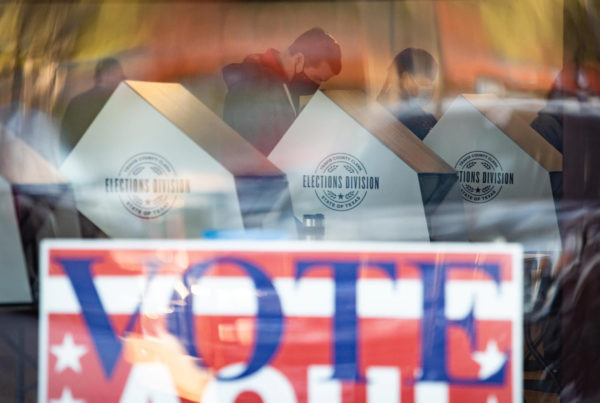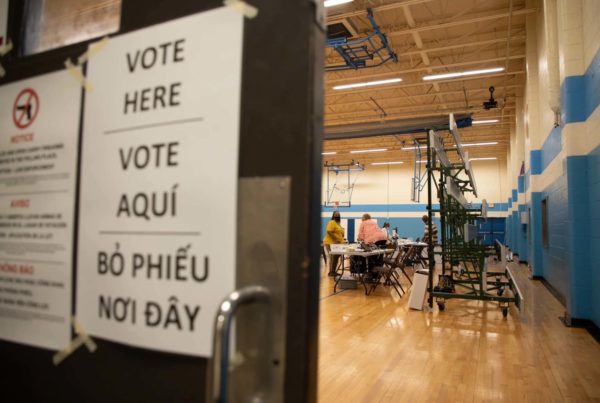From KERA:
The lone Republican on the Dallas County Commissioners Court, J.J. Koch, is facing a tough re-election fight against a Democrat allied with County Judge Clay Jenkins.
The race for District 2 on the court has coattails from the COVID era.
Last year, Koch refused to wear a mask when Jenkins ordered all people in the commissioners’ courtroom to wear one, leading to a bailiff escorting Koch out of a meeting. Koch said Jenkins did not have that power because Texas Gov. Greg Abbott had issued an order banning mask mandates. At the time, the Delta variant was fueling a rise in COVID-19 cases.
The clash led to a still-unresolved lawsuit over who can mandate masks.
“I think it’s really critical that our leaders speak with clarity regarding the authority they have, and never abuse their authority,” said Koch in an interview.
One of the lawyers representing Jenkins in the lawsuit is Andrew Sommerman, Koch’s opponent in this year’s election.
“It’s through that litigation that I came to realize that my opponent is nothing but about making things theater,” said Sommerman, who has worked on the case pro bono.
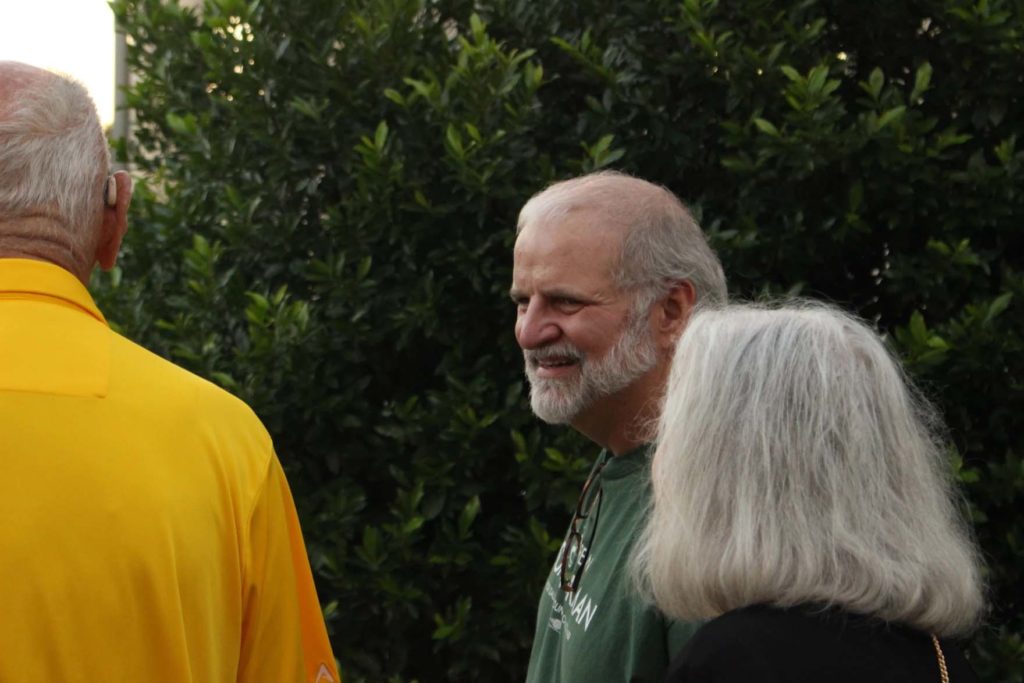
Democrat Andrew Sommerman is running to unseat Koch on the Dallas County Commissioners Court.
Bret Jaspers / KERA
Despite a newly drawn district more favorable to the opposing party, Koch said campaigning this year has been easier than his first at-bat in 2018.
“I’ve shown that I can govern,” he said while knocking on doors in Dallas earlier this month. “I don’t have the specter of Trump hanging over my head as much. But it’s still there, oddly enough.”
The job
Dallas County’s four commissioners and the county judge comprise a five-member panel that approves lots of spending — for elections, the criminal justice system, public health, housing, behavioral health, and other areas. They set the annual budget and tax rate and appoint people to various boards and commissions.
Koch said he is most proud of pushing for new software that increases county efficiency, while also setting aside money for five hours per week of employee retraining.
Here are some of the ways Koch and Sommerman come down on the issues:
The jail
Koch has repeatedly pointed to criminal court judges in Dallas County as culprits behind a stubbornly high jail population. He and Commissioner John Wiley Price have said some judges are not working enough or disposing enough cases.
The judges are paid from state funds, but the county can pay them a supplement of up to $18,000. Koch has urged commissioners to trim those supplements — even at a symbolically low amount — to send a message.
“I think it’s important to remind them, when we were told point-blank … kind of ‘butt out’, [that] well, we play a role in this. We fund your salaries, in part,” Koch said.
Last month, the bulk of the felony judges in Dallas County proposed seven adjustments to processes at the jail and courts. Koch said after that, the conversation got “a lot easier.”
The threat of a pay cut, however, is not something Sommerman would have done. He said thinking that someone would work more hours for less pay was a “ridiculous suggestion.”
“It creates a division. Instead of working with your partner, you have made your partner your enemy,” he said.
Sommerman said the county should set up “a lot more backlog courts” to clear out the backlog in cases that developed during the pandemic.
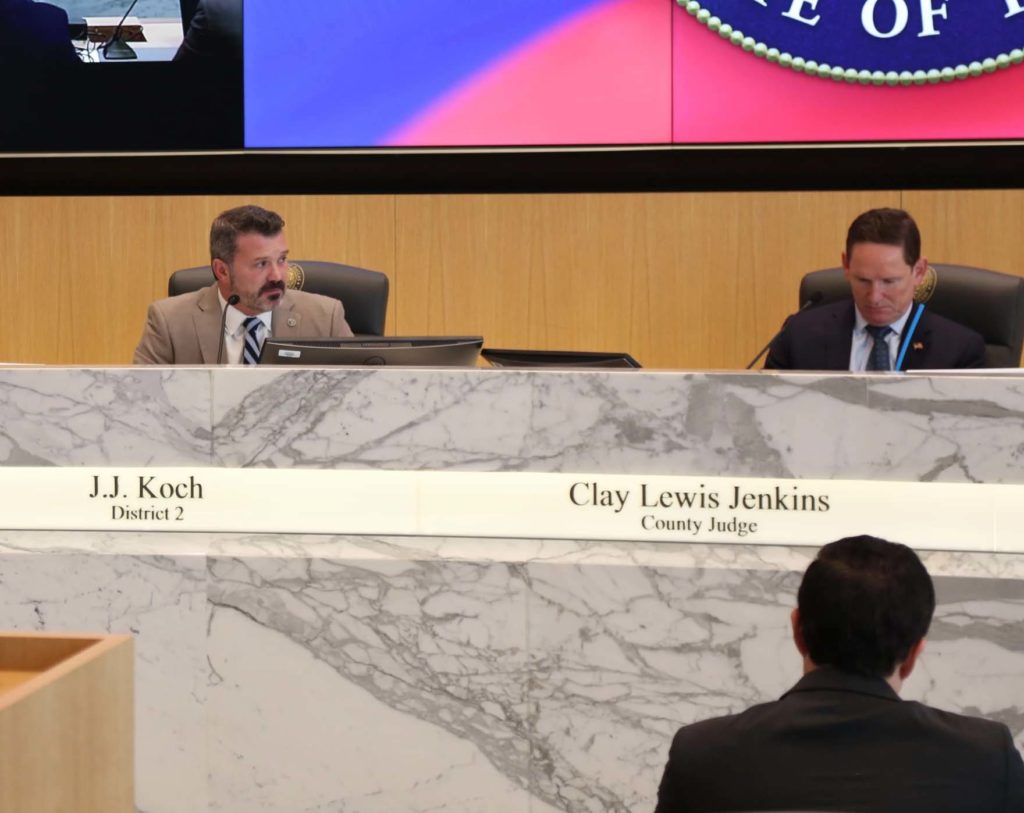
Commissioner J.J. Koch and County Judge Clay Jenkins at the Dallas County Commissioners Court on Sept. 20, 2022.
Jacob Wells / KERA News
Health care
Commissioners appoint members of the board that runs Parkland, the county’s public hospital. They also approve Parkland’s budget and property tax rate.
Sommerman and Koch have both raised the issue of other counties not paying enough for their poor residents to get care at Parkland.
Under state law, counties without a hospital district or public hospital must have a planto provide some basic services for poor patients. Over the years, Parkland officials have complained that Collin County and others pay just a fraction of the bill the hospital sends them for services their uninsured residents receive.
This is something both candidates want to change.
“We can make them our partners by providing facilities up in Collin County, so people, for example, in North Dallas County can use the Collin County facility, which is perhaps closer to them,” Sommerman said.
Koch also thinks there is a way to work more regionally. He referred to the North Texas Behavioral Health Authority, which serves a six-county region, as a potential model.
“Indigency health care probably should not stay within county boundaries anymore,” Koch said, adding that Parkland is a regional hospital even though only Dallas County residents pay property taxes to support it.
Both men pointed to working with the state Legislature to secure more funding or changes to how indigent health care is delivered. Sommerman said he would consider supporting a lawsuit against other counties as a last resort.
Property taxes
Koch and Jenkins voted against the county’s new property tax rate during the recently concluded budget season. Koch wanted to spend down federal funds and escrow accounts more than some other commissioners, who preferred to have a larger cushion. The final rate cut was one cent per $100 of assessed property value.
“That clean one cent cut in the tax rate, should have been more like 1.4 cents,” he said.
Koch estimates the actual difference in tax revenue would have been a small fraction of the total budget, but he believes “that discipline needs to be exhibited every time the public sees what you’re doing.”
Budget staff, however, said escrow funds could be needed for technology projects not included in the proposed budget.
“I would have voted as did Judge Jenkins for a lesser tax rate than what was passed,” Sommerman said.
Mental health
After seeing “dirt moved” on a new county jail, Koch’s priority for a possible second term is to increase incentives and support outpatient mental health services, something he said the county can do using federal COVID-19 relief dollars.
He also said he will lobby the state for more in-patient beds, “even if I don’t win reelection.”
Sommerman agreed the county needed to put more money into mental health care, arguing that paying more for those services would decrease crime, domestic violence, and homelessness.
“It is making investments in things that decrease the things we worry about for our safety and security,” he said.
Resumes
An issue in the campaign that surfaced last month were reported inaccuracies on Sommerman’s resume. A couple of the examples cited in the Dallas Morning Newsinclude Sommerman’s claim on a voter’s guide that he was on a board at the University of Texas at Arlington when his tenure had ended years ago. He also had imprecise information on a LinkedIn profile he said someone else wrote.
Sommerman said he should have checked the information himself and has since deleted the profile.
Koch’s online biographies checked out, although his LinkedIn profile put his tenure at the district attorney’s office about a month longer than what the office confirmed to KERA.
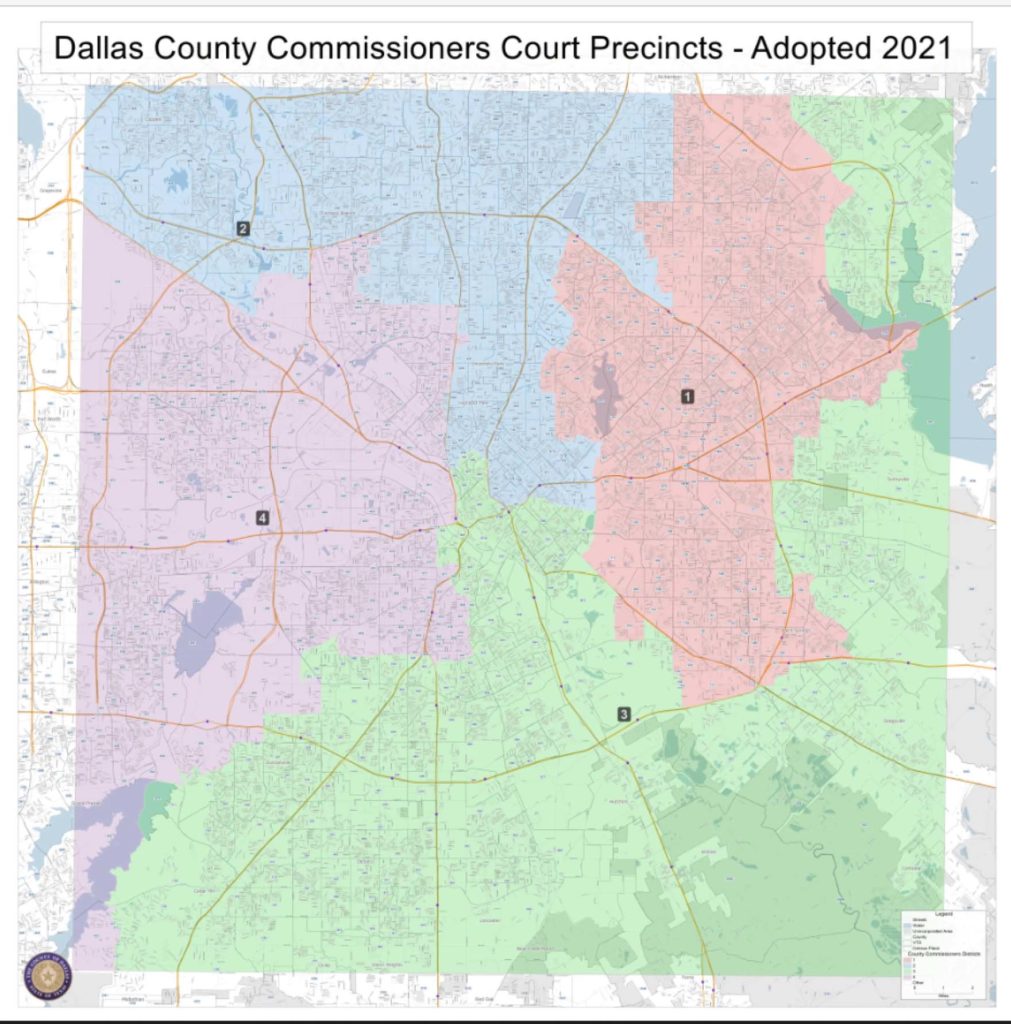
A map of districts for Dallas County Commissioners Court.
Screenshot / Dallas County
The district
Koch first won his seat in 2018 despite what was a “Democratic wave” year. But the district boundaries changed last year during the once-a-decade redistricting process.
As newly configured, the district narrowly voted for Democrat Lupe Valdez over Abbott in the 2018 election. That wasn’t the case for the previous boundaries. (Find your commissioner district here.)
Sommerman said the job is about representing a specific district, not political party.
“If I’m elected, I will represent Republicans and Democrats — everyone — fairly,” Sommerman said.
This year’s midterms had looked to be quite favorable for Republicans, but recent polls and forecasts show a competitive environment.
Koch likely hopes there are enough Democrats like Ronald McGowan — a Dallas resident who plans to vote for Democrats for state offices but is open to casting a vote for Koch.
“It’s always nice to have a little variety, because when it’s all — like in Austin, all Republicans — there’s just no debate,” he said.




